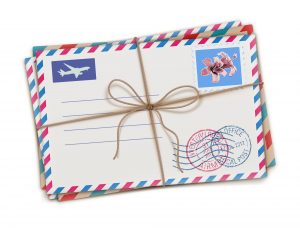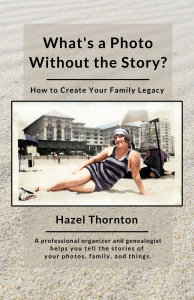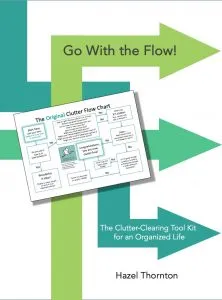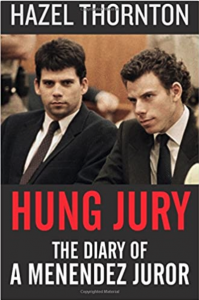Managing Memorabilia: 5 questions to ask before you start

We’ve all inherited and collected keepsakes and memorabilia. Are yours a legacy, or a liability? A blessing, or a burden? Are you afraid to open the boxes that have been languishing in your garage or storage unit? Do you feel overwhelmed by piles of your own photos, letters, kids’ artwork, and other tangible memories?
WARNING: Organizing memorabilia may cause you to re-think the way you currently live your life! Share on X
If you have been following my Mom’s Boxes blog series you know that dealing with 33 boxes of scrapbooks, photo albums, letters, and miscellany is taking me a while. I don’t work on it full time, by any means, and based on what I’ve gathered at the recent APPO annual conference, in Raleigh NC, this quantity of memorabilia and time involved is not that unusual. Whew!
Meanwhile, let’s talk about your memories.
Keepsakes v Memorabilia
I generally lump keepsakes and memorabilia into the same category, and this definition (and this article) pertains to all of it:
Things we don’t need for daily living, but which remind us of something or someone from our past.
But, technically, they are two different things:
Memorabilia: Objects kept for their historical interest, especially those associated with memorable people or events.
Keepsakes: Small items kept in memory of the person who gave it or originally owned it.
Small, granted, is in the eye of the beholder. The problem I see all too often, though, is that someone absorbs a loved one’s entire household of furniture and belongings into their own home simply because they feel guilty getting rid of it, or they don’t know what else to do with it.
If your collection of memorabilia is out of control, and you are wondering how to manage it, here are the questions I want you to ask yourself before you even get started.
QUESTION 1: Why am I doing this now?
How long has it been since you dealt with your own memorabilia? How much space does it occupy? Are you having trouble finding what you want to look at, display, use, or share?
If you’ve inherited someone else’s memorabilia, do you even know what’s in those boxes? Are you ready to take a hard look at them? It’s OK if you aren’t. Take your time. But don’t wait 16 years, like I did! And don’t store them in a dusty or non-climate-controlled shed, garage, or attic!
There’s no rush…unless, of course, you’re downsizing to move… or you’re terminally ill…. or you want to share the items with your family… or the boxes have been sitting there nagging at you.
(My mom died in 2001, before I joined NAPO and became a professional organizer. I finally decided I was ready to deal with her boxes, and fully equipped to do so, after APPO, which I joined years later, put the fear of God in me that letting them sit in my brother’s shed forever was probably not the best idea.)
QUESTION 2: What is my goal?
No matter what the project is, the first thing I ask a client, and suggest you ask yourself, is: “Why am I doing this?”
Is it because you want to…
- Downsize in preparation for a move? (Is it a hard, imminent trigger? Or do you have time for a leisurely, enjoyable organizing project?)
- Create more space in your current home?
- Simplify your current lifestyle?
- Make it easier for your loved ones to deal with your stuff when you die?
- Make money by selling items you no longer want to keep?
- Share the memories with your family? (Why keep the memories to yourself if you’re the one who is in possession of them?)
- Leave a family history legacy for future generations?
(My goal is to decrease the volume by AT LEAST 80% — so, paring 33 boxes down to 7. Then I’ll store the best stuff in an organized and archival manner, so that the memories won’t deteriorate, and so I can share the photos and stories with my family.)
QUESTION 3: Why am I keeping this?
You will ask yourself this question again and again, for each item you encounter. But, for now, just think about the overall quantity and quality of your memorabilia. And, as always, consider this: what is your clutter costing you?
Are you keeping it…
- To use, display, share and enjoy?
- Out of guilt, and other forms of mental clutter?
- Because you don’t know what else to do with it? (Stay tuned for next blog post!)
- Because you’re afraid you’ll forget the person, event, or era? (I promise you won’t.)
We think of memories as priceless, close to the heart, and hard to release, but not all of the things we own, or the things left behind by a loved one, are important in any way. Clients call me to help them go through boxes that they fear will be too painful to open alone. And we end up laughing at some of the stuff we find. Dishtowels in a package that were never used and are not special. Clothing that is not memorable or even wearable. Books that the previous owner may not ever have read, or enjoyed, but were sitting on their shelves when they died.
If you worry about offending a family member by getting rid of something, offer it to them! Share your plans and your stuff. Or, get rid of it surreptitiously. Would your deceased loved one want to see you suffer? Would they want your home to be cluttered and unlivable? Of course not! They would want you to feel happy and to cherish their memory, not feel burdened and guilty.
Once you’ve gathered everything together that you have to remember them by it will be easier to select a few special items and Give yourself permission to let the rest go.
(If my mom and her parents were famous I would keep everything and/or donate it all to a museum or archive. But they weren’t. Don’t worry, I will be keeping plenty to share with my family. As it is, when there’s too much to look at, no one looks at any of it.)
QUESTION 4: What will others do with my memorabilia when I die?
Now, start thinking about your own stuff. What are you leaving behind for others to deal with? People are going to be grieving for you someday, do you want to heap a pile of clutter on top of that?
Do your family a favor: Downsize & declutter now so your family doesn’t have to do it when you’re gone.
If something is special to you and you want the people you leave behind to know that, you need to tell them. Take a photo of the item; write a story about it; let people know what it meant to you, otherwise it will get lumped in with the dishtowels and they won’t know if it was important to you or not.
WARNING: This project may cause you to re-think the way you currently live your life!
The more you keep in mind how you want to live your life now, and how difficult it is to go through your own memorabilia, much less someone else’s, the more you will make mindful choices about what to keep now and going forward.
(I keep a personal inventory spreadsheet that lists important items in my home, designates who will inherit what – giving them permission to not keep it forever – and gives strict instructions to sell or donate the rest.)
QUESTION 5: Do I need help?
It’s a little tricky being both the organizer and the client for my project. For one thing I didn’t realize that my mom’s boxes would contain so much of her parents’ memorabilia. There are some treasures in there, such as my grandparents’ love letters, but there’s SO MUCH OF IT. And… if I don’t deal with it who will?
I find myself getting distracted from the organizing task at hand the same way my clients do. And I give myself the same advice: “Don’t read the letters now! Put them in the LETTERS pile. You can read them later!” I’m not paying myself for my time, though, so sometimes I go ahead and read the letters. Why not? The project is important, but there’s no rush to complete it.
Fortunately, I had my brother’s help with the initial sort. We’ve had to make some decisions for our other brothers who, also fortunately, trust us to make them. There have been touching moments, and funny ones, and we’ve experienced a range of emotions ranging from nostalgia over our own childhood photos, discomfort from reading Mom’s private journals, and the joy of hearing her voice and her piano music on cassette tapes.
If you don’t want to do it alone, ask a friend or relative to help you. If you don’t have anyone to ask, or you suspect they’ll be more of a distraction than a help, call a NAPO or APPO professional organizer to help you.
(Once we finished the initial sort, my brother left for a year in Japan. I have already agreed to trade services with an organizing colleague for the photo organizing part of the project.)
Next time:
Managing Memorabilia: How to get started
—————————————————————————
Copyright 2018 by Hazel Thornton, Organized For Life.
I welcome social media links directly to this page!
Please contact me for other types of reprint permission.
—————————————————————————
Share this:







These are great questions to consider. I think knowing your goal helps keep the finish line in sight. Good luck with all of Mom’s boxes!
Thanks, Andi!
These are great questions, Hazel. I think my goal would be to have things in order so that when I go (many many years from now, hopefully), my surviving family members will at least have a sense of what everything is so they can more easily decide what is to become of it.
Thank you for the link and suggestion. This is certainly where my siblings and I sit with regards to our parents things and by default, our grandparents’ stuff. I will be sharing the link with our ‘A Team’.
One thing we did that worked for us as we readied the house for sale was to work hard at finding a next life for anything we felt was useful. We gifted two cars to friends in need, shared photos of furniture and my dad’s intarsia with family and friends and found new homes for them.
The need that we met in using this strategy was that we felt it honored who my mom and dad are, were is so past tense and yucky when it comes to loved ones.
In any case we have run low on steam and the collection of boxes, including a pile of Christmas decorations (want any?), hasn’t gotten much smaller of late. I think your post will be helpful in getting on the move again, one box at a time, one tool for someone else, one photo going to the right family member…